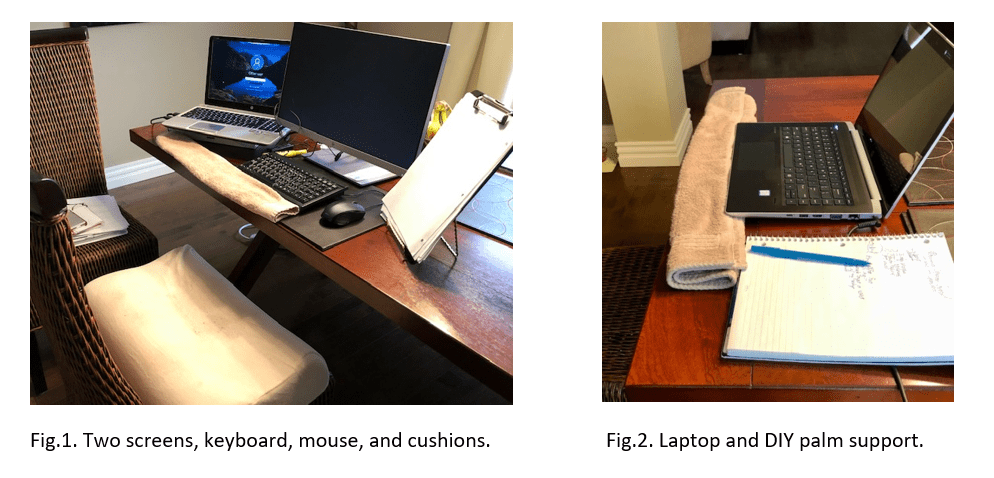Home Office Ergonomics Part 2

Before you begin, if you haven’t read part 1, please click here. This series is written by: Alain Désir, MSc.Erg.(Enr NB).
You will want to maintain your wrists at a natural angle when typing. Your hands should be as straight as your forearm when typing. To assure a proper wrist angle, collapse the keyboard legs so that the keyboard lays flat on the table. Use a palm rest if you have one. If not, roll a medium towel to make a DIY palm rest.
Telephone
If you have to type at the same time you are talking on the phone, use the hands-free function or use headphones.

Injury Prevention
Optimal body positioning will be difficult due to the fact that your table and chair will probably not be adjustable to your body type. For this reason it will be very important to prevent muscular skeletal injuries by varying your tasks or to regularly do stretches. Set your alarm to remind you to perform the following stretches every hour (see figure below). You do not have to do all of them at the same time. You can spread them around during your workday.
Also, to have a good quality of life and mental health, keep physically active and go outside for a walk, and make yourself a home exercise program. Also be mindful of anxiety caused by the Covid-19 quarantine measures (see W.H.O. pamphlet for stress coping strategies).
Be mindful of new pain areas for example your lower back, neck, and shoulders. Improper body positioning and biomechanics can cause muscular pain in a couple of days. If that is your case, do the following:
- Try to adjust your body positioning as per the recommendations,
- Vary your tasks more often so that you do not stay in the same position for extended amounts of time,
- Increase breaks
- Do not keep your drink at the table with you. Get up, go take a drink and come back to your computer. This will force you to change position.
- Perform the stretches before you start your workday, and do the stretches more often,
- Apply a hot pad on sore muscles during breaks, and at the end of the day.
This post originally appeared on the AT Help Desk website.
Tags: assistive technology, AT HelpDesk



